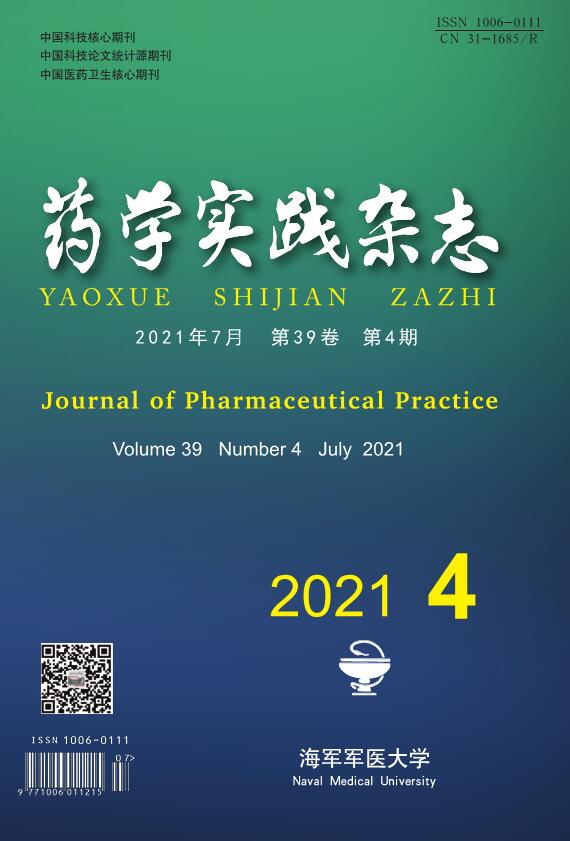-
抑郁症是由各种原因引起的以心情低落为主要症状的一种疾病,表现为兴趣丧失、自罪感、注意困难、食欲下降和自杀倾向等,并有其他认知、行为和社会功能障碍。该疾病往往病程长,且具有反复发作的特点,严重威胁到患者的身心健康。目前临床上治疗抑郁症的方式主要是通过药物治疗和非药物治疗,药物治疗包括抗抑郁药、中药和中成药;非药物治疗包括针灸治疗、心理治疗、物理治疗等[1],本文报告了我院对收治的抑郁症患者展开分组治疗的探索,分析不同治疗方式的临床效果,以期为抑郁症治疗积累经验和依据。
HTML
-
选取2019年1月—2020年1月在本院接受治疗的轻、中度抑郁症患者作为研究对象,将药物治疗加针灸治疗的40例患者作为联合治疗组,另选取症状程度类似仅接受药物治疗的43例患者作为对照组。
纳入标准:符合《中国精神疾病分类与诊断标准.第三版(CCMD-3)》中关于抑郁的诊断标准;包括症状标准、严重程度标准、病程标准;无免疫功能紊乱;无严重心、肺、肾疾患;未使用抗抑郁药物,对本次研究使用的药物无过敏反应。
排除标准:18岁以下患者,依从性差,未完成6周治疗观察的;患有器质性精神障碍、精神分裂症和双相障碍、精神活性物质和非成瘾物质所致抑郁障碍;酒精药物依赖或过敏体质,1个月内服用过激素类药物、神经阻滞剂、免疫调节剂者。
-
对照组患者只采用药物治疗:轻度抑郁症患者给予盐酸帕罗西汀进行治疗,起始剂量为20 mg/d,服用一周后根据患者临床症状、患者反应情况调整剂量范围至每日20~60 mg。中度抑郁症患者使用舍曲林,起始剂量为:50 mg/d,随着病情进展调整剂量范围至每日50~200 mg左右[2]。
联合治疗组患者在对照组基础上,加以针灸治疗,针灸治疗方法为:选择百会穴、印堂穴作为主穴,神庭穴、风池穴、大椎穴、神道穴、至阳穴为配穴。针灸方式:缓慢入针、采取导气针法,得气后留针半小时;艾灸治疗方法为:选择百会穴、大椎穴为主穴,使用百笑灸进行治疗,治疗时针灸并用,隔日一次,每周治疗3次,共治疗6周。百笑灸属固定灸,用固定的灸筒装置,点燃艾柱调节至合适位置,灸至艾柱燃尽,共施灸约半小时[3]。所有治疗结束后6周,对所有接受治疗者进行诊室或电话随访。
-
应用临床症状汉密尔顿焦虑量表(Hamilton anxiety scale,HAMA)和汉密尔顿抑郁量表(Hamilton depression scale,HAMD),比较两组抑郁症患者的治疗前后症状评分。其中HAMA评分标准:<7分表示无焦虑、7~14分表示可能有焦虑、14~21分轻度焦虑、21~29分中度焦虑、29分以上严重焦虑;HAMD评分标准:<8分无抑郁、8~20分轻度、20~35分中度、35分以上重度抑郁。临床疗效根据患者康复效果分为:显效、有效、无效。总有效率=100%-无效率。按照HAMD和HAMA的减分率平均值评估疗效,≥50%为显效,≥25%为有效,<25%为无效。减分率=(治疗前总分-治疗后总分)/治疗前总分×100%。
-
所有数据均进行准确核对和录入,采用SPSS 22.0软件分析数据。计量资料,如两组患者性别、年龄、病程等使用t检验;计数资料,如两组患者临床疗效、患者的HAMA、HAMD评分等,使用χ2检验。P<0.05为差异有统计学意义。
1.1. 资料
1.2. 方法
1.3. 观察指标
1.4. 统计学处理
-
对照组:男性患者22例、女性患者21例,患者年龄为24~78岁,平均年龄(44.5±3.4)岁;病程范围:1个月~8年,平均病程:(4.3±1.1)年。
联合治疗组:男性患者23例、女性患者17例,患者年龄为24~78岁,平均年龄(44.7±3.6)岁,病程范围:1个月~9年,平均病程:(4.5±1.4)年。
两组数据经t检验,无显著性差异。
-
因本研究分析对象为轻中度抑郁症患者,且以中度抑郁症患者为主,故未进行分层分析。治疗后对照组总有效35例,减分率平均值为38.88%,其中显效患者平均减分率为51.50%;联合治疗组总有效37例,减分率平均值为44.18%,显效患者平均减分率为54.50%。根据各组减分率平均值分疗效,得出联合治疗组抑郁症患者总有效率为92.50%,对照组抑郁症患者总有效率为81.39%,组间数据比较见表1,差异有统计学意义(P<0.05)。
组别 例数 显效 有效 无效 总有效率(%) 对照组 43 20(46.50) 15(34.88) 8(18.60) 81.39 联合治疗组 40 23(57.50) 14(35.00) 3(7.50) 92.50 χ2 5.541 1 P 0.018 5 -
治疗后两组患者的HAMA和HAMD评分较治疗前都明显下降(P<0.05);治疗后联合治疗组抑郁症患者的HAMA和HAMD评分均低于对照组(P<0.05),见表2。
组别 HAMA评分 HAMD评分 治疗前 治疗后 治疗前 治疗后 对照组 32.40±2.43 22.54±3.20# 32.21±2.37 22.09±2.15# 联合治疗组 32.19±1.20 15.60±3.12#* 32.24±2.46 14.23±2.10#* * P <0.05,与对照组比较;#P <0.05,与组内治疗前比较。
2.1. 一般资料
2.2. 比较两组抑郁症患者临床疗效
2.3. 两组抑郁症患者治疗前后及组间HAMA和HAMD评分比较
-
抑郁症作为一种心境障碍,患者往往表现出持续且持久的情绪低落、活动能力减退、思绪以及认知功能迟缓[4]。临床上治疗该疾病的药物包括:三环类抗抑郁剂、单胺氧化酶抑制剂、四环类抗抑郁药物以及选择性5-HT再摄取抑制剂(SSRIs),其中SSRIs使用率最高,但是SSRIs剂存在的缺点是起效慢、副作用较大等,因此临床上在治疗该疾病时,有时需要协同其他的有效治疗方式[5]。中医将抑郁症划分至“郁证”的范畴,郁病指的是:因为情志不舒、气机淤滞所致,患者抑郁善忧、表情淡漠、情绪不宁等[6]。针灸治疗该疾病逐渐取得了较为满意的效果,但是大多集中于针刺和电针,有研究表明,针灸和药物联合治疗效果更佳[7]。
本研究结果表明治疗后联合治疗组抑郁症患者的HAMA、HAMD评分均低于对照组(P<0.05),说明针灸结合SSRIs类抗抑郁药治疗效果明显优于单用SSRIs类抗抑郁药。这与其他针灸、针刺、电针等联合SSRIs类抗抑郁药治疗抑郁症研究结果相似,且治疗总有效率相差约±7%[8-10],其造成疗效差距的原因大致归纳为观察病例数不同、患者抑郁程度差异、患者对药物反应及耐受能力差、对针灸的接受度等。本研究较其他相似研究总有效率低的原因为观察病例较多、治疗患者以中度抑郁为主;总有效率较其他相似研究高的原因,为未纳入对药物反应及耐受能力差的患者。
针灸治疗抑郁症有效与抑郁症的中医病机等相关。抑郁症归属于中医内科的“郁病”范畴,其主要病理机制包括:气机紊乱、阴阳失调、脑神失养。临床治疗时主张“治郁先治脑、其病在血脉”,中医认为醒脑通脉、脉舍神、血脉通、郁病自然而然改变。通过针灸治疗能够促进患者血液循环,改善患者气血瘀滞。艾灸治疗可以起到温补、通顺的作用,还能够有效改善患者脑部功能作用,达到抗抑郁的效果。从现代药理学出发,艾灸对抑郁症患者能够起到直接作用,从而改善患者抑郁症症状。相较于西药治疗,通过西药联合针灸治疗,能够有效减少药物副作用,并降低复发率发生,从而有效提高患者的治疗依从性,为患者寻找到新的治疗思路[11]。本研究中患者对针灸的接受度良好,依从性较好,除偶有针刺部位局部青紫,未出现其他不良反应。针灸治疗能够减少SSRIs类药物使用剂量,从而降低其副作用的产生,具有较高的临床应用价值。因本研究病例数量不够大,研究对象主要为中度抑郁症患者,轻度病例较少,且未纳入重度抑郁症患者,故存在一定的局限性,今后将继续收集更多的病例,寻求多专业、多学科交叉合作,寻找更加有效的治疗方法。







 DownLoad:
DownLoad: